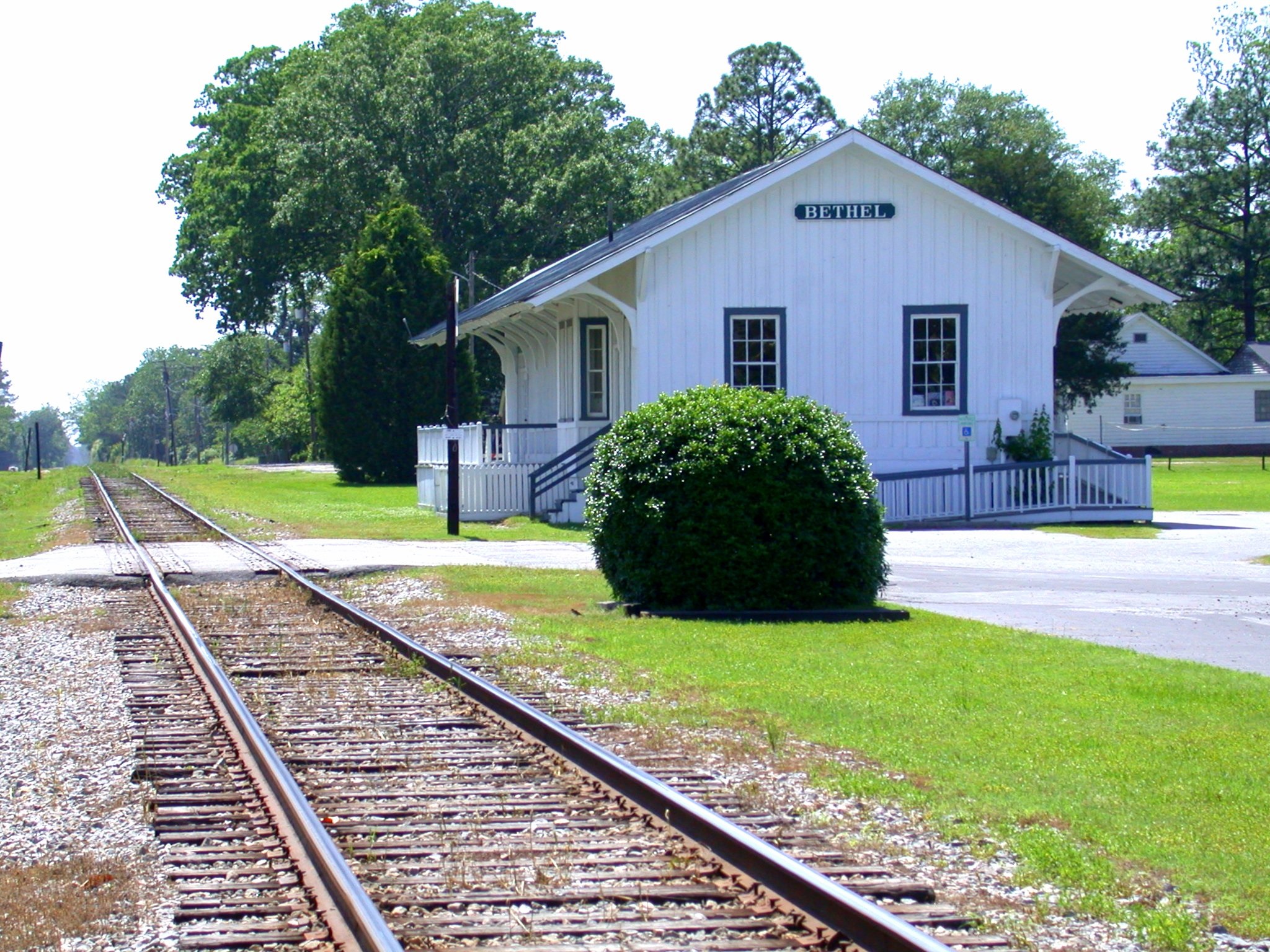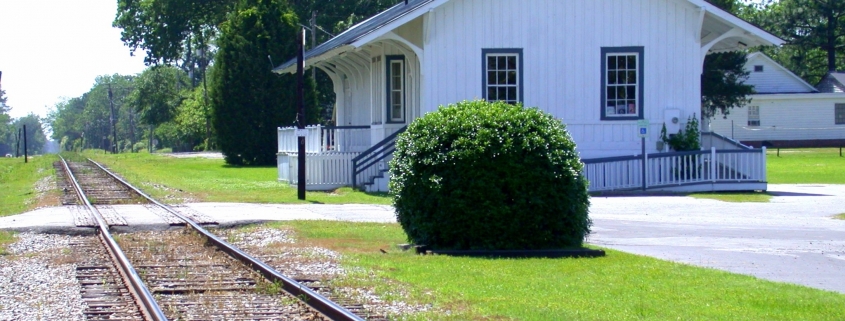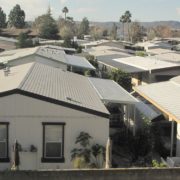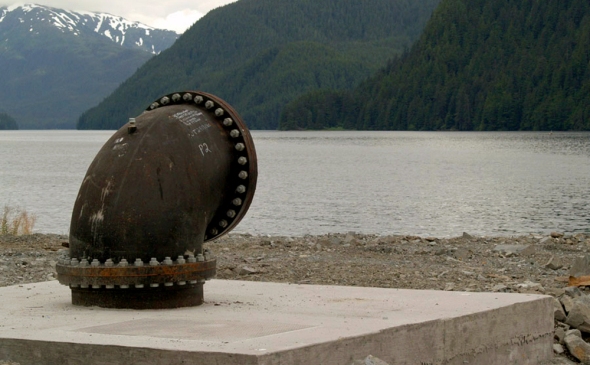North Carolina Panel Designates Financially Distressed Water and Sewer Systems
Four small local governments that face big financial hurdles will receive state funding to assess their water and sewer options.

The former train depot in Bethel, North Carolina, is now a branch of the Pitt County library system. The State Water Infrastructure Authority designated the town as financially distressed on November 18, 2020. Photo courtesy of Flickr/Creative Commons user davebailey
By Brett Walton, Circle of Blue
North Carolina officials took a decisive step on Wednesday in a years-long process to identify financially struggling water and sewer providers and assist them in a transition toward financial stability and reliable service.
The State Water Infrastructure Authority designated four local governments as “distressed,” a label that unlocks assistance from a $9 million fund established by the General Assembly and approved by Gov. Roy Cooper in July.
The four entities are the towns of Bethel, Eureka, and Kingstown, as well as Cliffside Sanitary District. Each will receive grants between $100,000 and $400,000 to assess the condition of their infrastructure, study the suitability of their rates, or evaluate the feasibility of merging their water or sewer systems with a neighboring community.
The designations are in response to an economic upheaval in the state’s rural areas, even before the pandemic. Greg Gaskins, one of the infrastructure authority’s nine members, noted an unsettling trend in local government finance.
In the last two years, the state has had to take control of the finances of two local governments — Eureka and Cliffside Sanitary District, both a part of the decision today. In the previous seven decades, there had been only two such cases.
“The crisis is here,” said Gaskins, who is also the deputy treasurer for the State and Local Finance Division of the Office of the State Treasurer. “We couldn’t be any more timely in addressing it.”
In a phone interview after the meeting, Gaskins reiterated his point about economic and demographic changes in rural North Carolina that are giving rise to financial crises. The big industries of the past — tobacco, textiles, agriculture — have withered. New jobs are being created elsewhere, in the urban centers of Charlotte and the Research Triangle. In many areas, those who remain are left with an unbearable burden.
“The economics of these communities are no longer sufficient to support the water and sewer infrastructure,” he told Circle of Blue.
Identifying the financial and managerial shortcomings of small utilities is a key component of the state’s water infrastructure master plan, which was published in 2017.
Two state government entities are involved in the process. Besides the State Water Infrastructure Authority, the Local Government Commission is also responsible for approving distressed designations. The commission did so for these four systems at a November 10 meeting.
The scorecard for determining a distressed system consists of 20 criteria, from population trends and water system revenue to water rates and debt levels. It’s not a complete picture, said Kim Colson, a member of the infrastructure authority. But it’s “a starting point.” A community’s size can be an indicator of potential trouble. Bethel, the largest of the four distressed systems, serves 1,753 people. The others serve several hundred.
Raising rates is not always an option either. Eureka has one of the highest sewer rates in the state, noted Colson, who is also the director of the Division of Water Infrastructure. Even so, the system is still losing money.
Colson said that he has viewed the designation process as a means of being proactive, but “things are changing so quickly that it feels like we’re getting a little behind.”
Merging with a larger, more financially stable neighbor is one solution. Bethel, with state assistance, is already considering that path, having initiated discussions with Greenville, a city of 93,000 that is located 14 miles south.
The General Assembly made an initial allocation to the fund of $9 million, but Gaskins and others think that more money is necessary, given the size of the problem. Gaskins is certain that more local governments will be designated as distressed in the coming months as the agencies evaluate roughly 500 water and sewer systems in the state. A draft review from earlier this year found 183 systems that could qualify, based solely on the scoring criteria.
“Part of this is an educational process,” Gaskins said. “To define the problem so that leaders can see what is needed.”
Brett writes about agriculture, energy, infrastructure, and the politics and economics of water in the United States. He also writes the Federal Water Tap, Circle of Blue’s weekly digest of U.S. government water news. He is the winner of two Society of Environmental Journalists reporting awards, one of the top honors in American environmental journalism: first place for explanatory reporting for a series on septic system pollution in the United States(2016) and third place for beat reporting in a small market (2014). He received the Sierra Club’s Distinguished Service Award in 2018. Brett lives in Seattle, where he hikes the mountains and bakes pies. Contact Brett Walton













Leave a Reply
Want to join the discussion?Feel free to contribute!